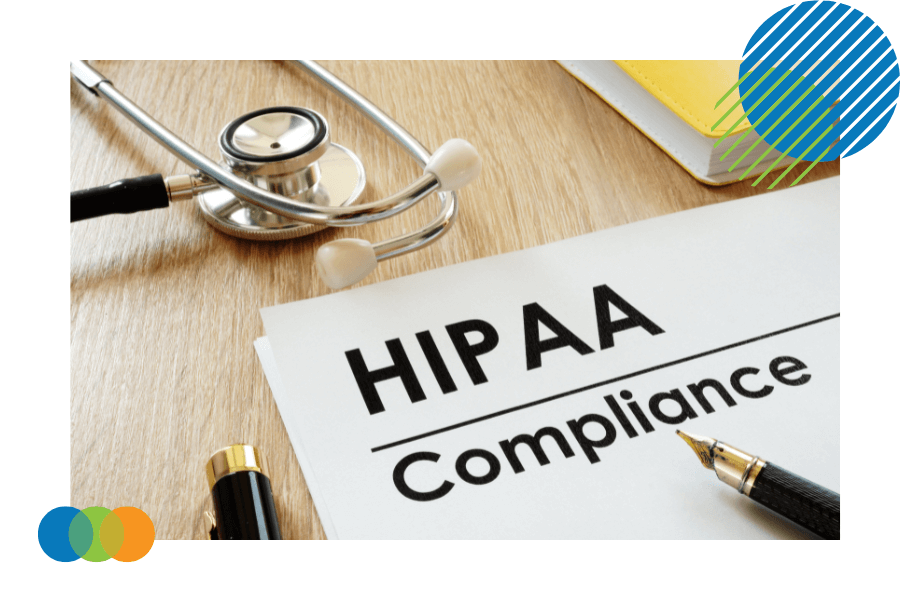 |
Written by Liz McDermott |
In today's digital landscape, where information flows freely and rapidly, protecting sensitive patient data has never been more critical. The Health Insurance Portability and Accountability Act (HIPAA) is a cornerstone for safeguarding patient privacy in the healthcare sector. However, HIPAA's effectiveness hinges significantly on healthcare professionals' training and awareness.
This article delves into the essential components of HIPAA compliance training and its role in upholding patient confidentiality and trust.

Understanding HIPAA: The Foundation of Patient Privacy
HIPAA was enacted in 1996 to ensure that protected health information (PHI) remains confidential and secure. The law sets forth regulations dictating how healthcare providers, insurers, and related entities handle personal health data. The primary goals of HIPAA include:
-
Confidentiality: Ensuring that patient information is only accessible to authorized individuals.
-
Integrity: Protecting data from unauthorized alterations.
-
Availability: Ensuring data is accessible to those who need it when required.
These objectives underscore the importance of HIPAA compliance training, which equips healthcare workers with the necessary knowledge to navigate these regulations effectively.
The Importance of HIPAA Compliance Training
Building Trust with Patients
Patients entrust healthcare providers with sensitive information, and maintaining this trust is vital. Regular HIPAA compliance training helps staff understand the importance of confidentiality and the implications of mishandling PHI. Employees who are well-versed in HIPAA regulations are more likely to handle patient data with care and respect, fostering a trustworthy environment.
Legal Compliance and Risk Mitigation
Failure to comply with HIPAA can result in severe penalties, ranging from hefty fines to legal actions. By implementing comprehensive HIPAA training programs, healthcare organizations can minimize the risk of breaches and ensure compliance with legal requirements. A proactive approach to training can prevent costly violations and protect the organization’s reputation.
Enhancing Data Security
With the rise of cyber threats and data breaches, healthcare organizations must prioritize data security. HIPAA compliance training provides employees the tools to recognize potential risks and implement appropriate safeguards. Organizations can significantly reduce the likelihood of breaches by educating staff on best practices for data protection.
Key Components of HIPAA Compliance Training
1. Understanding Patient Confidentiality
A foundational aspect of HIPAA training is educating employees about patient confidentiality. This includes:
-
Defining PHI: Staff must understand what constitutes protected health information and its importance.
-
Access Control: Training should cover who is authorized to access patient data and under what circumstances.
-
Consequences of Breaches: Employees must be aware of the potential repercussions of unauthorized disclosures for themselves and the organization.
2. Security Standards
Protecting electronic protected health information (ePHI) is crucial in today’s technology-driven healthcare environment. Training should cover:
-
Secure Technology: Employees must learn about the secure use of technology, including encryption and firewall protections.
-
Risk Assessments: Regular assessments should be conducted to identify vulnerabilities and implement corrective measures.
-
Incident Response: Staff should be trained to respond to security incidents effectively, including reporting procedures and mitigation strategies.
3. Breach Notification Procedures
In the event of a data breach, swift action is necessary. Training should address:
-
Identification of Breaches: Employees must learn to recognize potential breaches, such as unauthorized access or lost devices.
-
Reporting Protocols: Clear guidelines should be established for reporting breaches, including timelines and responsible parties.
-
Documentation: Training should emphasize the importance of documenting breaches and the actions taken in response.
Best Practices for Implementing HIPAA Compliance Training
Tailoring Training Programs
Every healthcare organization is unique, and training programs should reflect the workforce's specific needs. Customizing training content to address the particular challenges staff face can enhance engagement and retention of information.
Interactive Learning Methods
Engaging employees through interactive training methods can significantly improve knowledge retention. Consider incorporating:
-
Quizzes and Scenarios: Use real-life scenarios to test employees' understanding and decision-making skills.
-
Workshops: Facilitate discussions and hands-on activities that encourage collaboration and peer learning.
Regular Refresher Courses
HIPAA regulations can change, and regular refresher courses are essential to keep staff updated on new policies and practices. Scheduling annual training sessions helps reinforce the importance of compliance and ensures that employees remain informed about emerging threats and best practices.
Documenting Training Efforts
Maintaining accurate records of training sessions is crucial for demonstrating compliance. Organizations should document:
-
Training Dates: Keep track of when training sessions occur.
-
Attendance Records: Maintain lists of employees who attended each session.
-
Content Covered: Document the topics discussed during training to ensure comprehensive coverage.
This documentation is vital during audits or investigations, proving that the organization has taken the necessary steps to comply with HIPAA regulations.
The Role of HR in HIPAA Compliance
Human Resources (HR) professionals are pivotal in ensuring HIPAA compliance within healthcare organizations. Their responsibilities include:
Risk Management
HR should be involved in the organization's risk assessment processes, identifying potential threats to PHI and implementing appropriate safeguards. Regular audits and monitoring of compliance policies are essential for maintaining data security.
Confidentiality Agreements
Ensuring all employees and business associates sign confidentiality agreements is crucial for protecting patient information. These agreements outline the expectations and responsibilities of staff regarding data privacy.
Incident Response Planning
HR should collaborate with IT and security teams to develop a robust incident response plan. Employees must be educated on the importance of reporting potential breaches immediately and understanding the steps to take following a breach.
Common Mistakes to Avoid in HIPAA Compliance Training
Despite the importance of HIPAA training, organizations often make critical mistakes that can lead to compliance failures. Here are some common pitfalls to avoid:
Inadequate Training Frequency
One-time training sessions are not sufficient. Organizations should prioritize ongoing education to keep staff informed about changes in regulations and emerging threats.
Lack of Engagement
Dry or overly technical training can lead to disengagement. Incorporating interactive elements and real-world scenarios can help maintain interest and reinforce learning.
Ignoring Documentation
Failing to document training efforts can have serious consequences during audits. Organizations must ensure that they maintain thorough records of all training activities.
The Future of HIPAA Compliance Training
As technology continues to evolve, so will the landscape of HIPAA compliance training. Organizations must stay ahead of the curve by:
Leveraging Technology
Utilizing digital training platforms can enhance the training experience. Online courses and interactive modules allow employees to learn independently and access materials whenever needed.
Staying Informed
It is essential to stay informed about changes in HIPAA regulations and industry best practices. Organizations should subscribe to relevant newsletters and participate in industry forums.
Fostering a Culture of Compliance
Creating a workplace culture that prioritizes compliance can significantly impact the effectiveness of HIPAA training. Encouraging open discussions about data security and the importance of protecting patient information fosters accountability among staff.
How Vubiz Can Help Your Healthcare Organization Provide HIPAA Compliance Training
HIPAA compliance training is vital for safeguarding patient privacy in the healthcare sector. Organizations can protect sensitive patient data, minimize risks, and foster trust by equipping healthcare professionals with the knowledge and skills needed to navigate HIPAA regulations. Vubiz's HIPAA Compliance Training course can help your healthcare organization prioritize a comprehensive training program that will unify compliance information, which is essential for meeting regulatory requirements and ensuring the security of patient information.
By committing to practical HIPAA compliance training, healthcare organizations can uphold the highest patient privacy and data protection standards, ultimately enhancing the quality of patient care.
